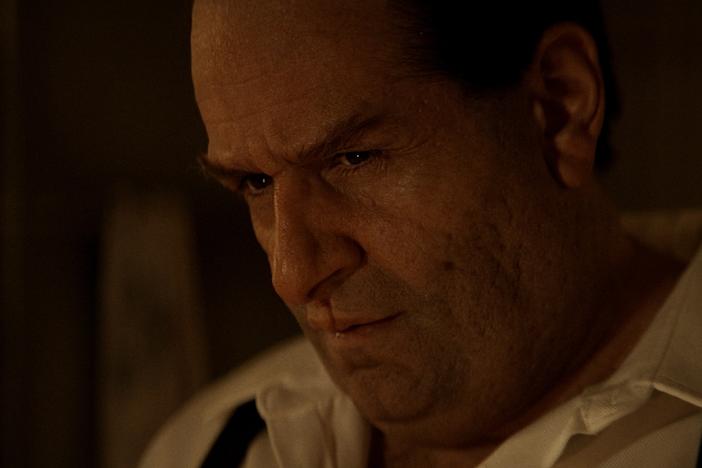Section Branding
Header Content
In 'Baby J,' John Mulaney's jokes are all at the expense of one person: John Mulaney
Primary Content
Almost every joke in the new John Mulaney special, Baby J, is at the expense of the same person: John Mulaney, circa 2020-2021.
2023 John Mulaney wants to talk about going to rehab at the end of 2020 to treat addictions to cocaine, Adderall, Xanax, Klonopin and Percocet. He wants to talk about behaving absurdly and self-destructively at his own intervention, in the early days of rehab, in his days of active drug use, and in the moments when he realized just how bad things had gotten.
Probably wisely, he doesn't talk about his divorce, or his new relationship with actor Olivia Munn with whom he now has a son, or about landing in gossip columns as he never had before May 2021. Leaving the details of your disasters out of your comedy when they involve other people seems like a reasonable decision to me. And the special suggests that if his personal choices disrupt the prior image people had of him, that's probably OK. As he puts it in the one incisive moment of reflection he offers on this point, "Likability is a jail." Whew.
Mulaney has always recounted his own foolish behavior as part of his comedy. In fact, in his 2012 special New in Town, he talks about a disastrous effort he made to trick a doctor into giving him a Xanax prescription. (It seems a lot less funny now.) He's poked fun at his own past as a problem drinker, he's mocked his own speaking voice, his looks, and his awkwardness with strangers. His 2009 album The Top Part recounted his belated realization that he had accidentally scared a woman in the subway by giving her the distinct impression he was chasing her.
But here, stories about himself are not scattered among a broader set of reflections on politics and pop culture. Instead, as a story of 2020 John Mulaney, Baby J is laser-focused and unrelenting. Mulaney describes his "star-studded intervention" (with appearances from Seth Meyers, Fred Armisen, and Nick Kroll), which he resented and complained about before realizing — with some additional but differently shaped resentment — that his friends had saved his life.
He talks about rehab, where he lied about the drugs he was carrying and acted surprised when they were discovered. He remembers a succession of calls from Pete Davidson for which he was awakened from hard-won sleep. He talks about life before rehab, too, including a story of stealing his own money in the clumsiest, messiest, most expensive way you can imagine. At just about every turn, he is telling a joke about a real jerk, and he is the jerk.
It can be uncomfortable to watch, because he's only about two years out from this experience, so it feels raw and risky. It helps that almost none of this material draws big conclusions. There are few lessons, no grand explanations of addiction or recovery. Anything along those lines, any effort to frame it as a collection of completed lessons, would ring false. It's clear that this is a diary from a road he's very much still traveling.
Instead, the special teases out very funny details of events his sober self finds baffling. Not just his relationship with his drug dealer or his deeply uncomfortable story of getting pills from a creepy doctor, but even the world of rehab. After all, rehab takes you into a place where you don't know anyone, where you are abruptly asked to give up all control of many facets of your life to the staff and bare your soul to strangers. He makes a compelling case that on top of all the other things it is, it's a weird experience.
What works so well in Baby J is what works in a lot of good comedy: that combination of recognition and bafflement when you look at something that's true but seems impossible. He's certainly not the first person to look at his own life this way — it's a staple of the work of, for example, Mike Birbiglia. Birbiglia became famous talking about his sleep disorder in a way that was instantly recognizable as authentic and scary but also absolutely bonkers and sometimes silly.
It's a tricky balance to recount your own disasters without glamor — to find some of your most self-destructive behavior funny without making it seem a little bit cool. It's a relief that at no point in this special does John Mulaney circa 2020-2021 seem even remotely cool. Instead, he's presented by 2023 John Mulaney with a combination of intimacy and distance, where the storyteller is both inside and outside the narrative, but the two versions of the self baffle each other. It's a very funny collection of stories from a very chaotic period in Mulaney's life, but it's also stealthily thoughtful about the way a storyteller is always both people at once: awake and asleep, the person you really are and the person people think you are, the you that takes drugs and the you that just wants to, the you that is telling the story and the you that is in it.
Copyright 2023 NPR. To see more, visit https://www.npr.org.
Correction
A previous version of this review incorrectly identified when John Mulaney spoke about accidentally scaring a woman in the subway. It was part of his 2009 album The Top Part, not his 2012 special New in Town.
Bottom Content




